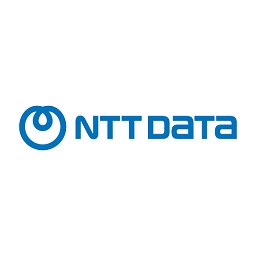Job Opportunities in South Africa
October 15, 2024
INTERCONNECT SYSTEMS
Cape Town
FULL TIME
Senior Administrator
SUMMARY OF POSITION
A Senior Administrator is a supervisory position that requires a combination of administrative function and learning supervisory and managerial skills. The employee is responsible for supervising administrative staff and supervising daily operations to ensure smooth and efficient functioning of the branch.
ROLES AND RESPONSIBILITIES
· Key Administrative duties
Working Conditions
Certain behavioural requirements are important for success in the role. Here are some of the key behavioural traits that an administrative manager should possess:
Application Question(s):
Expected Start Date: 2024/11/04
A Senior Administrator is a supervisory position that requires a combination of administrative function and learning supervisory and managerial skills. The employee is responsible for supervising administrative staff and supervising daily operations to ensure smooth and efficient functioning of the branch.
ROLES AND RESPONSIBILITIES
· Key Administrative duties
- Supervising administrative staff: Supervise administrative and support staff. Provide guidance, direction, and support to team members, set goals and objectives, and evaluate their performance with feedback session to your Administrative Manager/Branch Manager.
- Budgeting and financial management: Supervising and monitor budgets for the administrative department. Ensure that expenses are within budget and review the branch's income statement and make budgetary suggestions to your Administrative Manager/Branch Manager. Record and monitor all future costs relating to current jobs and advise Administrative Manager/Branch Manager on all accruals or postponement of jobs cost.
- Communication and coordination: Coordinate with other departments within the branch, as well as communicate with external partners, vendors, suppliers, and clients. Attend meetings, respond to emails, and coordinate with other departments.
- Workflow optimization: Ensure that all documentation has been captured and saved of the previous day’s work handed in. Work with service providers and follow up on progress on site to provide feedback to operational managers where needed. Implement new practises or processes to improve efficiency with alliance of your Administrative Manager/Branch Manager.
- Project management: Oversee and supervising projects within the administrative department. Suggestion of new process flows and assisting your Administrative Manager/Branch Manager on implement new procedures that in being rolled out. Keep track of expenses and ensure that the project operates within its allocated budget.
- Continuous improvement: Identify areas for improvement within the administrative department and develop strategies to address them with your Administrative Manager/Branch Manager.
- Assist the Administrative Manager/Branch Manager: Provide support to the Administrative Manager/Branch Manager by helping with tasks such as budgeting, staffing, inventory management, and other day-to-day administrative tasks. Provide training and development opportunities to help improve the administrative department’s skills and knowledge.
- Assist with the implementation of Human Capital initiatives such as HEART values, onboarding, culture enriching initiatives, learning and development initiatives, special projects etc.
Working Conditions
- The Senior Administrative will work primarily in an office environment.
- The position may require occasional evening or weekend work.
- Minimum of Grade 12 or equivalent
- A degree or diploma would be an advantage in business administration or a related field.
- Proven work experience as an administrator or in a similar role for 3 years.
- Demonstration of leadership, management and communication skills.
- Excellent organizational and problem-solving skills.
- Proficiency in relevant software
- Ability to work independently and collaboratively
- Strong attention to detail and ability to multitask
- Knowledge of budgeting and financial management would be an advantage.
Certain behavioural requirements are important for success in the role. Here are some of the key behavioural traits that an administrative manager should possess:
- Time management: Senior administrators often have multiple responsibilities and tasks to handle, and they need to be able to prioritize their workload and manage their time efficiently.
- Adaptability: The ability to adapt to change and work in a fast-paced environment is important for a senior administrator, as the must be able to respond quickly to new challenges and opportunities.
- Problem-solving: A senior administrator must be able to identify problems, brainstorm solutions, and implement effective strategies to address issues as they arise with his/her Administrative Manager/Branch Manager.
- Attention to detail: A senior administrator must have a keen eye for detail to ensure that all aspects of their work are accurate.
- Interpersonal skills: A senior administrator must be able to build and maintain positive relationships with colleagues, clients and stakeholders.
- Strategic thinking: Senior administrators must be able to think strategically and develop long-term plans to assist the Administrative Manager/Branch Manager to achieve branch goals.
- Leadership: A senior administrator must shop strong up and coming leadership skills to supervise and motivate teams, supervise tasks.
- Communication: Excellent communication skills are a must for a senior administrator to be able to convey ideas and instructions clearly, as well as listen to feedback from employees, clients and stakeholders.
- Overall, a Senior Administrative typically holds a up and coming leadership role in an branch and is responsible for supervising a variety of administrative tasks and functions. Demonstrate excellent organizational and time management skills, and the ability to work well under pressure in a fast-paced environment and be able to supervising staff.
Application Question(s):
- What is your salary expectation for this role?
- Senior Administrator: 3 years (Required)
- Supervisory: 2 years (Required)
Expected Start Date: 2024/11/04
We regret to inform you that this job opportunity is no longer available
Latest Job Opportunities


October 20, 2024
EY
Associate / Senior Associate IT Audit: Johannesburg & Cape Town
Cape Town
View Details


Similar Jobs

September 10, 2024
Absa Bank Limited
Senior Specialist: Business Development (Logistics)Tran
Bloemfontein
FULL TIME
View Details
September 10, 2024
Caterpillar
Senior Finance Analyst Distribution Services
Gauteng
FULL TIME
View Details
September 10, 2024
NTT DATA
Senior Managed Services Client Service Desk Agent
Johannesburg
FULL TIME
View Details